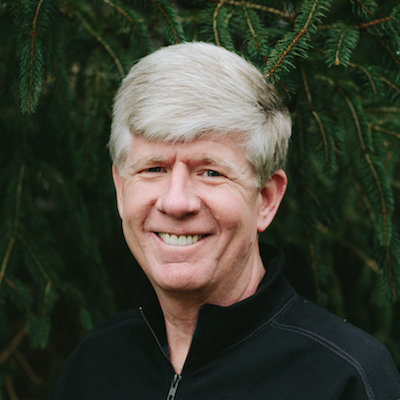Many of us claim that there are certain things we’ll never do. Almost always on that list is something we end up doing anyway. We end up making that treacherous fall or slip-up that leads us off the path to that “Neverland” we said we’d never go to. We find ourselves in a place we told ourselves we would never go. The road to Neverland is paved with good intentions as well as temptations and trials.
My Neverland
One of my Neverlands was that I was never going to get a divorce or cheat on my wife. As my business responsibilities grew and I was doing lots of traveling for business, from my perspective, I was experiencing feelings of rejection, and the emotional distance between my wife and me had begun to grow. The travelling, feelings of rejection, and emotional distance continued to increase.
Soon, I began fantasizing about someone else who was not my wife. Inevitably, I acted on my fantasy and did the very thing that I had said I would never do. I had gone to my Neverland.
Our Ideal Self Versus Our Real Self
We all have a “place” or a picture of who we aspire to be or how we want others to view us. That place is our ideal selves. On the other hand, there is that person who we really are, our real selves. We all experience gaps between our ideal self and our real self. The bigger that gap gets, the bigger our stress gets as we try to hide what’s really going on.
What Happens When the Gap Widens
When that stress kicks in, our bodies are like a car that’s breaking down. When a car is full of gas, oil, and transmission fluid, and it has good tire pressure and strong belts, the car typically will drive well. But if any one of those things starts failing, you’ll have to pull the car over; Otherwise, the engine could burn out or the car could break down in some other way. From first-hand experience, I can tell you that running out of oil will eventually destroy your engine if you keep driving. If your tire gets flat, you can’t keep driving.
Our bodies are that way. When our bodies are fully fueled with serotonin, the stuff that keeps us in balance, we’re probably sleeping well, exercising, and eating well. In this condition, our stress level is low. Our bodies also need to be balanced with dopamine, which causes us to want to be in relationship with other people. Once the gap emerges between our ideal self, or who we put ourselves out to be, and our real self, stress hits our lives. When it does, our serotonin and dopamine levels become unbalanced, our adrenal system gets completely out of whack, and our bodies start releasing shots of adrenaline when they’re not supposed to.
If our adrenal system begins to malfunction, we’ll start having feelings of anxiety such as a fast heartbeat, cold hands, and negative thoughts. Ultimately, this downward spiral – if not dealt with – will lead to depression. In a state of depression, what used to be logical is now illogical, and what used to be illogical is now logical. When I expressed myself in my suicide letter that I had written to my wife when all this unfolded, it made sense to me that, if I took my life, my family would be better off. Of course, as I think about that now in my right mind, that thought is totally illogical.
Suicide can follow depression, and suicide can come in many forms. It could be emotional, physical, relational, financial, mental, or professional. It doesn’t necessarily have to be physical death. It could be a divorce, two best friends not speaking to each other, two business partners splitting up, a church split, or athletes quitting teams.
An Empty Gas Tank
Here’s how this plays out. As the person’s gas tank begins to empty, he or she often will become controlling and manipulative. That person will gradually start pulling away from others because he or she doesn’t want anyone to know what’s really going on, trying to continue to project his or her ideal self to the outside world. After that control and manipulation gets far enough along, a person in this state will start convoluting communications. You can’t quite get your head around the truth with people who are in this condition.
The next thing that happens is they will start attacking and discrediting anyone who recognizes what’s truly going on. The person who is trying to help, maybe a friend or a spouse, often will be completely rejected and decide to end the relationship. Or, the person going through it will completely pull away from the helper along with other relationships in life and become more and more isolated. You may have seen this happen with people around you. You may have had it happen to you yourself. This clearly happened to me, and I’m thankful to be able to help others with this now.
Refilling Our Gas Tank
The only way to overcome this process is to close that gap between the ideal self and the real self, restoring the person’s strength and energy. Here’s one way to help with this process in case you’re feeling that your gas tank is running low. First, think about the things, foods, people, places, and activities that fill your tank. Write them down. Make a list. Be specific.
Now, make a list of those same types of things that empty your tank. Again, be specific. You may find that you even have people in your life whom you need to avoid. You may also need to avoid some activities. As you look at these two lists, give yourself the freedom to make new decisions about all those things on both your lists. As you continue this process, you’ll see you want to spend less time on what empties your tank and, instead, focus more time and energy on what fills your tank. When you do, you’ll get your gas tank filled back up, and you’ll begin traveling a new road away from the emptiness, away from that Neverland.
If you are having thoughts of suicide, please go tell your doctor. I’m telling you from my own experience that there is hope on the other side of this. You are not alone even though it feels that way. Don’t hang on to it. Get some help. Don’t try to get through this on your own.
Over the years, I have found that one of the biggest gas tank emptiers is unforgiveness and that one of the things that fills our gas tanks is forgiveness. Let me encourage you to ask yourself these questions: Who in your life have you not forgiven, including yourself? What unforgiveness are you hanging on to? Don’t allow unforgiveness to destroy you because of someone else’s mistake. Remember, forgiveness is a mental choice you get to choose to make for yourself. Why not give yourself the freedom to make that choice.
Transformational leaders often experience places of difficulty. Those places often force us to think about who we are and where we place our thoughts and energy. But those are the very places we can grow, become more insightful, and come out as better leaders.
Ford Taylor is a leadership strategist, keynote speaker, and the author of Relactional Leadership. As the Founder of Transformational Leadership, he is known as a man who can solve complex business issues, with straightforward practical solutions, while maintaining his focus on people.



